On October 16, the French Institute for East Asian Studies (IFRAE) and the School of Oriental Languages and Civilizations (INALCO) co-organized a workshop with the theme "Which innovation system for Vietnam?"
The event is part of the “France-Vietnam Cross Year of Innovation,” initiated by the French Embassy in Vietnam, in coordination with agencies, research institutes and the Vietnam Innovation Network in Europe (VINEU).
This is a high-level academic activity, bringing together a large number of researchers, representatives of agencies, businesses and the Vietnamese community in France, to discuss orientations for developing an innovation system suitable for Vietnam in the coming period.
In his opening remarks, Professor Michel Blanchard, the program coordinator, emphasized that Vietnam is facing the challenge of escaping the “middle-income trap” to aim for becoming a high-income country by 2045.
He believes that to achieve this goal, Vietnam needs to consider innovation as the central driving force of growth.
Mr. Jean-Philippe Eglinger, initiator of the “France-Vietnam Cross Year of Innovation,” said the workshop was organized to outline the overall picture of the innovation ecosystem in Vietnam, especially since the Government launched the 844 Program to support national innovative startups in 2016.
According to him, this is an opportunity for scholars, businesses and students of the two countries to share experiences and discuss innovation models suitable for the context of Vietnam, contributing to realizing the goal of becoming an upper-middle-income country by 2030 and a developed country by 2045.
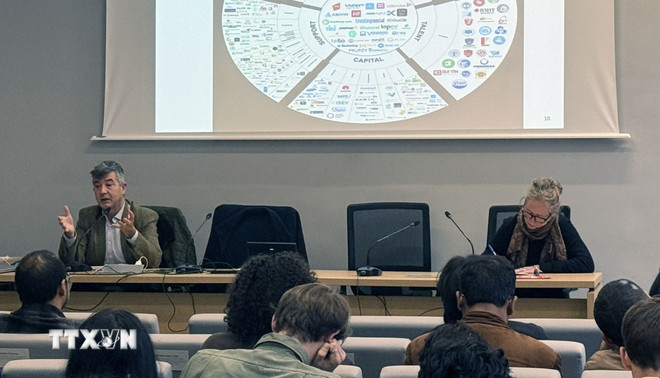
Speaking at the workshop, Vietnamese Ambassador to France Dinh Toan Thang highly appreciated the initiative to organize this event, considering it a strategic activity in the context of Vietnam promoting the transformation of its growth model.
The Ambassador emphasized: “ Science , technology, innovation and digital transformation are key breakthroughs and the main driving force for Vietnam to innovate its development model, towards the goal of sustainable development.”
Ambassador Dinh Toan Thang affirmed that France has always been considered by Vietnam as a technological power and a comprehensive strategic partner, with advanced science, research and academia. The two countries have great potential for cooperation in areas such as artificial intelligence, cyber security, civil nuclear energy, North-South high-speed railway, clean energy, aerospace industry, high-tech agriculture and modern medicine.
He also emphasized France's role in training high-quality human resources for Vietnam through scholarship programs, dual degrees and joint research projects.
In his speech, Professor Michel Blanchard presented an analysis of Vietnam's macroeconomic situation, pointing out that Vietnam still relies mainly on the production-assembly model in the electronics sector, with a low rate of domestic value added.
He said this model helps promote exports and rapid growth in the early stages, but in the long term Vietnam needs to shift to industries with higher technology and knowledge content, and invest heavily in productivity and innovation to escape the “middle-income trap.”
Assessing Vietnam's innovation policy, Professor Blanchard affirmed that the political determination of Vietnam's leaders is very strong, considering innovation not only as the task of the science and technology sector but also as the career of the whole society.
He said that Vietnam can learn from France's experience in effectively connecting the public-private sector, universities, research institutes and businesses, forming a comprehensive innovation ecosystem.
Speaking to VNA reporters, Ms. Tran Ha My, Director of VINEU in France and Chairwoman of the Association of Young Vietnamese Entrepreneurs in Europe, said she had coordinated with Vietnamese and French professors of INALCO to organize this event, with the aim of sharing academic research on the innovation system suitable for Vietnam, and at the same time finding solutions to promote public-private cooperation, especially between French and Vietnamese enterprises, to bring the innovation process to a new level.
The workshop took place in a vibrant academic atmosphere, with many exchanges between researchers and the French-Vietnamese business community on technology development orientations, digital transformation and bilateral cooperation in the field of innovation.
Delegates agreed that innovation is not only an inevitable trend but also a mandate of the times, the foundation for green growth, sustainable development and enhancing Vietnam's position in the global value chain./.
Source: https://www.vietnamplus.vn/viet-nam-va-phap-thuc-day-hop-tac-trong-linh-vuc-doi-moi-sang-tao-post1070838.vnp



![[Photo] Closing ceremony of the 18th Congress of Hanoi Party Committee](https://vphoto.vietnam.vn/thumb/1200x675/vietnam/resource/IMAGE/2025/10/17/1760704850107_ndo_br_1-jpg.webp)




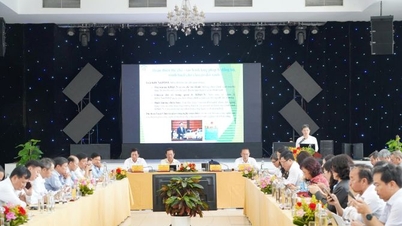

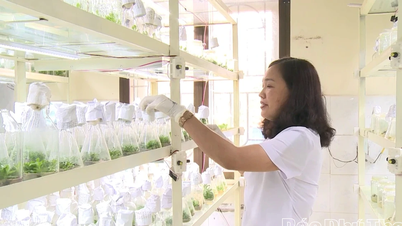

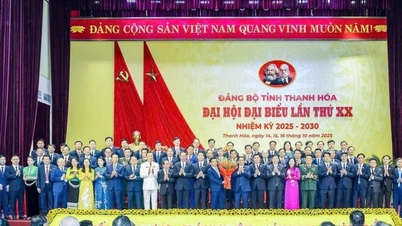

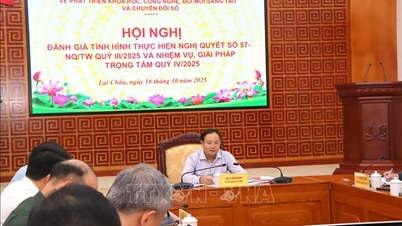

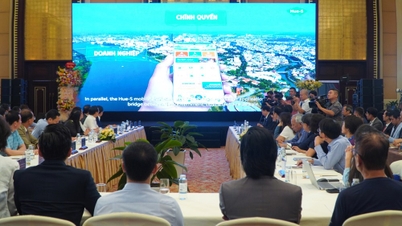

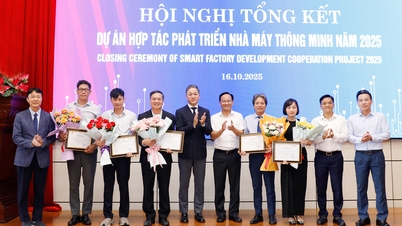




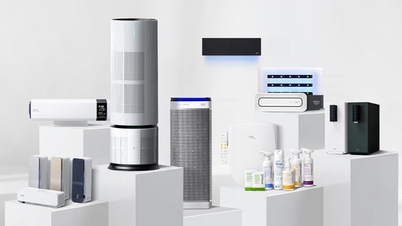








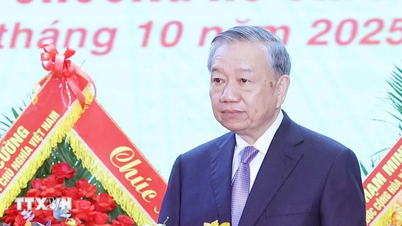
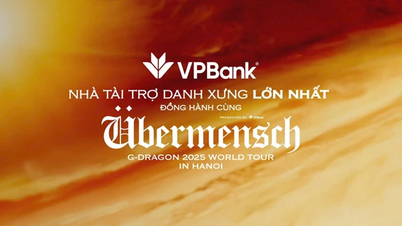
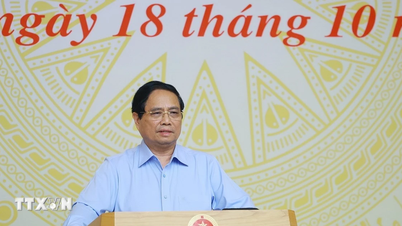
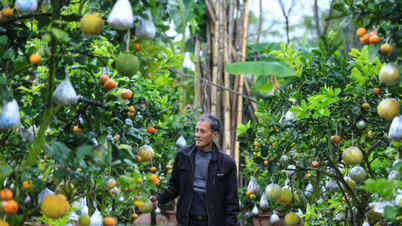
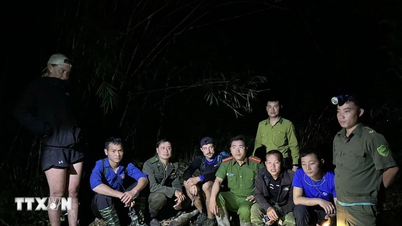


![[Photo] Nhan Dan Newspaper launches “Fatherland in the Heart: The Concert Film”](https://vphoto.vietnam.vn/thumb/1200x675/vietnam/resource/IMAGE/2025/10/16/1760622132545_thiet-ke-chua-co-ten-36-png.webp)






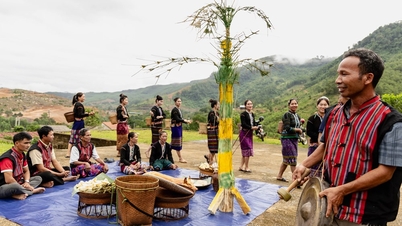




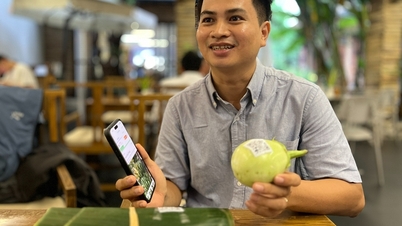


















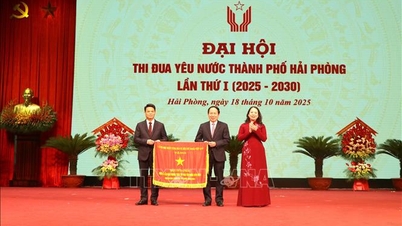
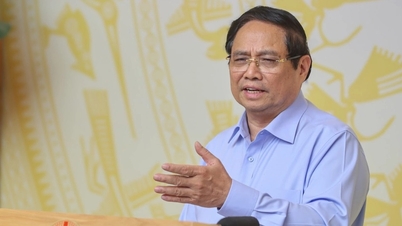
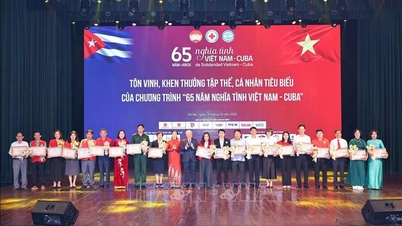


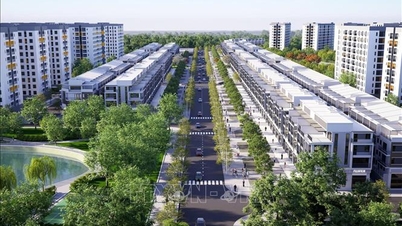







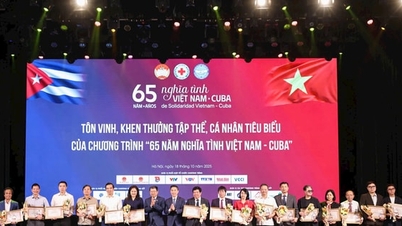



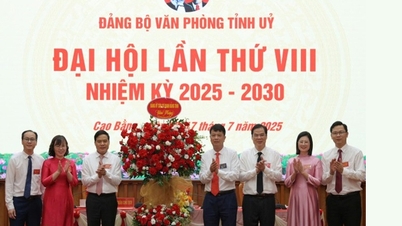


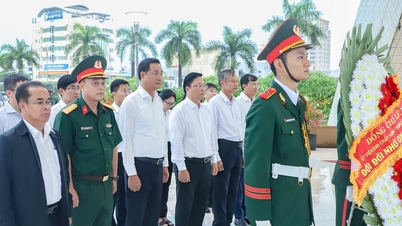

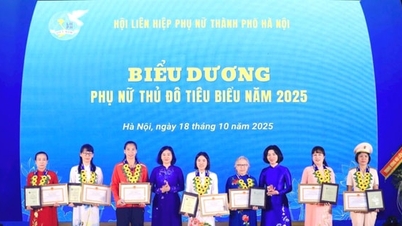
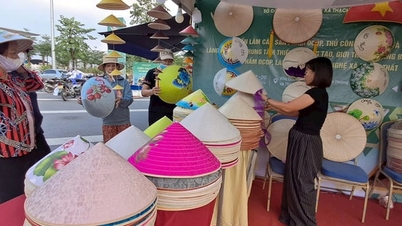













Comment (0)